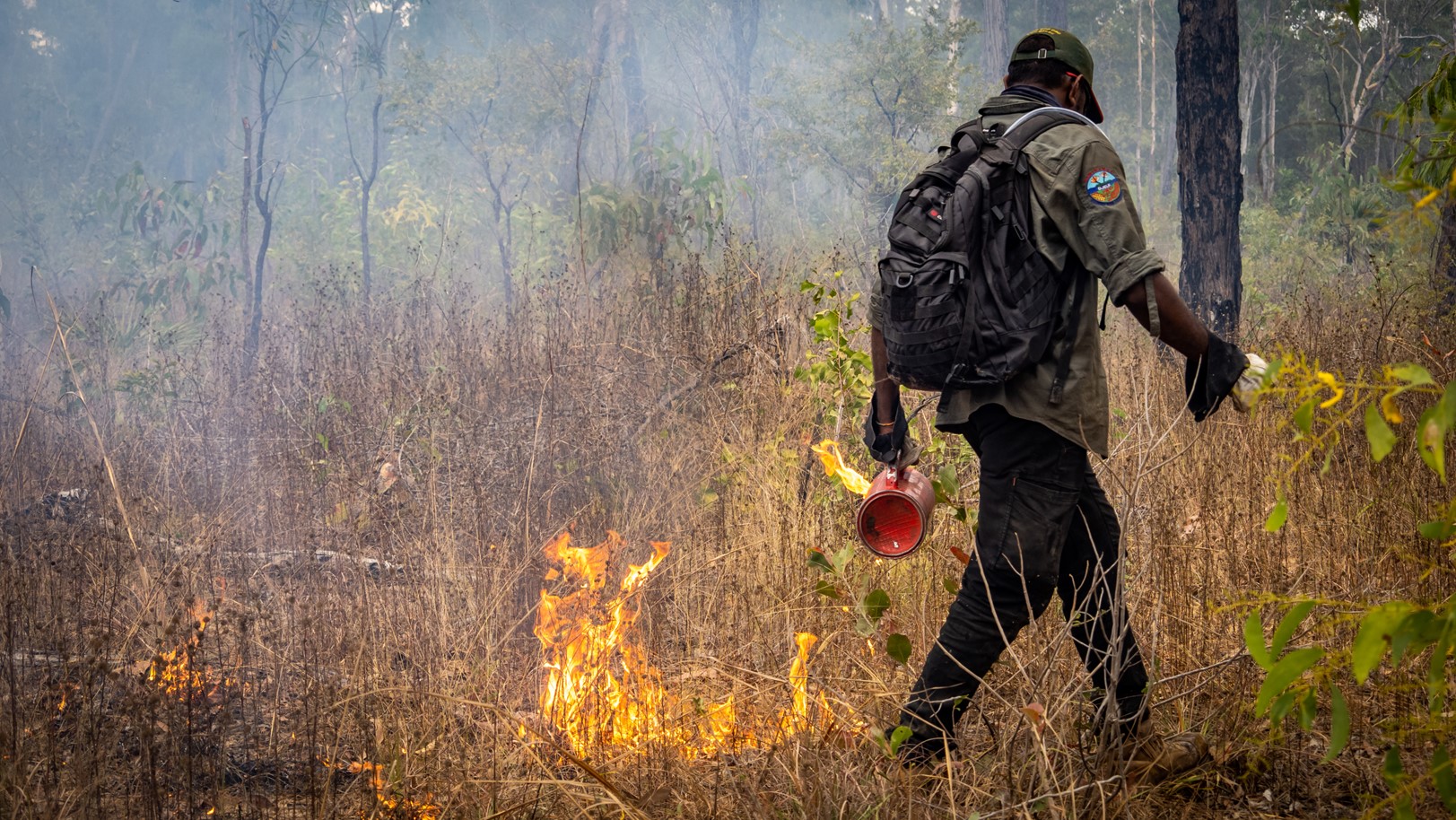Warning
Aboriginal and Torres Strait Islander readers are warned that the following article may contain images of deceased persons.
Combining traditional Indigenous knowledge with modern technologies, controlled savanna fire management is one of the Clean Energy Regulator's carbon abatement methods. Early dry season burning creates a patchwork of firebreaks that can limit the number and size of destructive late-season wildfires. The savanna fire management methods aim to reduce the frequency and severity of late dry season fires in savannas, resulting in fewer greenhouse gas emissions. The 2018 method also credits for increased carbon stored in the landscape as a result of the change in fire patterns.
“The scheme provides a source of funding for Traditional Owners to be able to realise their aspirations for Country,” Arnhem Land Fire Abatement (ALFA) Chief Executive Officer, Dr Jennifer Ansell, said.
“Undertaking fire management in a way that is culturally responsive requires extensive funds - it's employing people, getting people out on remote Country, and doing it in a way that people are in control of, in charge of and making decisions around.”
ALFA was created by Traditional Owners and Aboriginal ranger groups in western Arnhem Land involved in the operation of the West Arnhem Land Fire Abatement (WALFA) project - the first savanna fire abatement project anywhere in the world, covering 28,000 square kilometres of land.
Today, ALFA has grown to support multiple project partners in Arnhem Land in their engagement in the carbon industry, working to protect, preserve, and care for the environment through bushfire management activities across over 80,000 square kilometres of land.
The co-benefits of savanna fire management projects are extensive. For ALFA, the flow-on positive effects for Traditional Owners in Arnhem Land can be seen across a range of environmental, cultural, social and economic co-benefits.
Clive Nunggarrgalu is a Traditional Landowner and ranger coordinator in south east Arnhem Land. He explains “Our ranger groups do the same thing every year for the fire season. We get together and catch up with all the Landowners to talk about what they want to do. If they want to come out to do burning, we can take them. If it's the Learning on Country (LoC) kids from school, we can take them out and show them the country and talk about everything that we do with the ranger group. We have Songlines all along, we talk about the Songlines and explain to the kids when they work with us.”
Since the company was created and WALFA was registered to participate, ALFA has expanded to support projects right throughout Arnhem Land. To date, ALFA has earned over 4,800,000 Australian carbon credit units (ACCUs) under savanna fire management methods. Each ACCU represents one tonne of carbon dioxide equivalent avoided by the project, and ACCUs earned can then be sold. Through the production and sale of carbon credits, ALFA has been able to fund its project partners to deliver community identified projects, such as recording rock art knowledge, cultural site maintenance, education, ecological monitoring and women's ranger programs. There are benefits to Country through fire management, and benefits through the reinvestment of funds to other community priorities. “It has been incredible to see ALFA's project partners be able to have an independent income stream they can use to invest in their own projects and also to be able to use that income to leverage additional funds,” Dr Ansell said.
Traditional Owners in the Warddeken Indigenous Protected Area, which makes up nearly half of the WALFA project, used carbon credit income and philanthropic funding to finance the creation and early operations of the Nawarddeken Academy. A unique model of bi-cultural, community-driven education in the remote communities of western Arnhem Land, the Nawarddeken Academy now operates three independent registered schools providing full-time education on country.
“The future is looking bright for the carbon industry. ALFA is particularly excited about the strengthening of climate policies, future method developments and the strong growth in the demand and price of ACCUs. The scheme allows ALFA to maximise opportunities to deliver funding to support project partners in Arnhem Land undertake savanna fire management as well as deliver of broader land management and community development aspirations,” Dr Ansell concluded.
For more information on the Nawarddeken Academy, visit Nawarddeken Academy.
